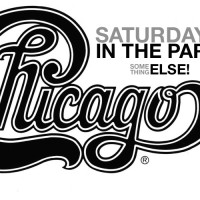Despite the time away, Chicago returned in a surprisingly conservative mood. “Feel,” the opening track from their first album of all-new material in 15 years, stubbornly refused to embrace the weird juxtaposition that working with a country act like Rascal Flatts might create.
But maybe the record-label guys wanted to lead with a deeply unremarkable single that echoed every tired latter-day Chicago trope? And maybe the band had gotten that out of its collective system?
It seems possible, for roughly a minute and a half. Producer Jay DeMarcus of Rascal Flatts opens “King of Might Have Been” at the acoustic piano, where he is joined by co-writing vocalist Jason Scheff. Together, they guide the second tune from 2006’s Chicago XXX through an expectant period of blank-faced sorrow.
“King of Might Have Been” really wants to go somewhere; Scheff once again tries with painful obviousness to sing it there. Next, there’s a murmur of brass amid a new surge saccharine strings, suggesting that James Pankow might be given something to arrange. Still, to this point, the track feels perfectly named.
Then Chicago does what Chicago has been doing since David Foster slipped behind the console for 1982’s Chicago 16, but with ever diminishing returns: They try for another anachronistically huge love song. By the two-minute mark on “King of Might Have Been,” there’s all manner of late ’80s sound and early ’90s fury – including, but not limited to, monotonous guitars, opaque background singers, a teeth-rattling cadence, and a production style so over-processed that it too becomes featureless. Yet, once again, this all signifies nothing.
Chicago has been here before, but with better material (h/t, Diane Warren, Peter Cetera and the aforementioned Foster). And they also typically gave those songs over to a better singer (h/t, Cetera again, and the unfortunately soon-to-depart Bill Champlin).
Pankow is, indeed, given a chart assignment to while away his time – but the horns feel tacked on, likely because they were. Chicago XXX was principally recorded in Nashville, where Jay DeMarcus brought in a group of glossy ringers to help complete the songs. The horn sessions, however, were in Los Angeles.
And so Jason Scheff is left to recede within an echoing, far-too-long fade, giving way once more to DeMarcus’ lonesome piano. With no obvious sense of irony, Chicago has ended up right back where they started.
- The Bright Spots in George Harrison’s Troubled ‘Dark Horse’ Era - December 29, 2024
- The Pink Floyd Deep Cut That Perfectly Encapsulates ‘The Wall’ - November 29, 2024
- Why Pink Floyd’s ‘The Endless River’ Provided a Perfect Ending - November 11, 2024



